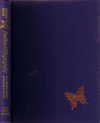Out of Print
Edited By: MV Lomolino and LR Heaney
390 pages, 97 Illus, 16 col maps
The cutting edge of ecological research
![Frontiers of Biogeography Frontiers of Biogeography]()
Click to have a closer look
About this book
Contents
Biography
Related titles
About this book
This is the first book in the Frontiers of Biogeography series, which includes integrative and interdisciplinary volumes developed and published in association with the International Biogeography Society. The period between 1975 and 2000 was one of fundamental change in historical biogeography, island biogeography, and marine biogeography, and saw the emergence of new fields including phylogeography, macroecology, and applications of biogeography for conserving biological diversity. This book concentrates explicitly on these advances and on the most promising and most insightful lines of future research on the geography of nature.
Contents
Preface - List of Contributors - Introduction: - PART I: PALEOBIOGEOGRAPHY - Introduction - Cenozoic and Mesozoic Paleogeography - Arid Lands Paleobiogeography - Quaternary Biogeography - Biogeography on a Dynamic Earth - PART II: PHYLOGEOGRAPHY AND DIVERSIFICATION - Introduction - The Past and Future Roles of Phylogeography in Historical Biogeography - Range Expansion, Extinction, and Biogeographic Congruence - Reticulations in Historical Biogeography - PART III: DIVERSITY GRADIENTS - Introduction - Beyond Species Richness - The Global Diversity Gradient - Diversity Emerging - Dynamic Hypotheses of Richness on Islands and Continents - PART IV: MARINE BIOGEOGRAPHY - Introduction - Island Life - A Marine Center of Origin - Pattern and Process in Marine Biogeography - PART V: CONSERVATION BIOLOGY - Introduction - How Do Biological Invasions Alter Diversity Patterns? - GIS-Based Predictive Biogeography in the Context of Conservation - Applying Species-Area Relationships to the Conservation of Species Diversity - Conservation Biogeography in Oceanic Archipelagoes - Concluding Remarks - References - Index -
Customer Reviews
Biography
MARK V. LOMOLINO is a Professor in the Department of Environmental and Forest Biology at SUNY College of Environmental Science and Forestry, Syracuse. He is cofounder and past President of the International Biogeography Society. Dr. Lomolino received the American Society of Mammalogists Award and serves on the editorial advisory boards for Biological Conservation and Global Ecology and Biogeography. LAWRENCE R. HEANEY is Curator and Head of the Division of Mammals at The Field Museum in Chicago. Dr. Heaney studies the ecology and evolution of mammals on the islands of Southeast Asia and
Out of Print
Edited By: MV Lomolino and LR Heaney
390 pages, 97 Illus, 16 col maps
The cutting edge of ecological research



































